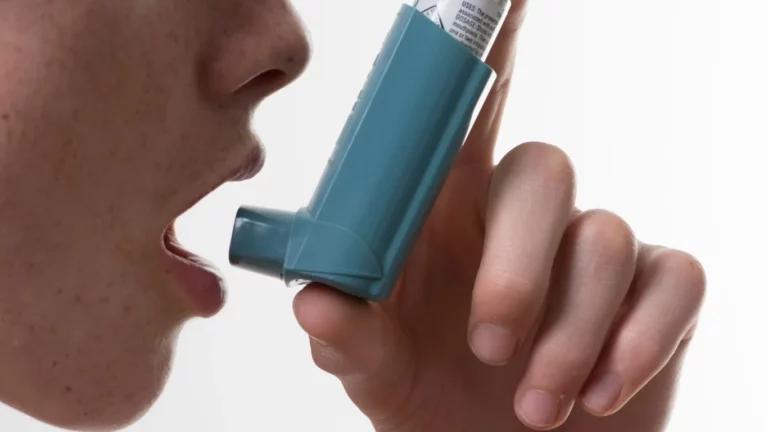Managing Mild Intermittent Asthma: A Simple Guide
Dealing with mild intermittent asthma doesn’t have to be overwhelming. You can manage your symptoms effectively with the right strategies and habits. Here’s how to keep your asthma under control and live your life without too much interruption.
Having mild intermittent asthma means that your symptoms only show up occasionally—maybe after a cold or during certain environmental changes. While it’s manageable, it’s still important to stay on top of things to avoid flare-ups. If you’re wondering how to handle it, you’re in the right place!
What is Mild Intermittent Asthma?
Before diving into management tips, it’s good to understand what mild intermittent asthma actually is. It’s the type of asthma where you experience symptoms (like wheezing, coughing, shortness of breath, or chest tightness) less than twice a week and rarely during the night. So, it’s not constant, but it does pop up from time to time.
If this sounds like you, the goal is to keep those occasional flare-ups in check so you don’t have to deal with asthma every day.

How to Manage Mild Intermittent Asthma
There are a few key ways to keep asthma under control without feeling like it’s ruling your life. Here’s how you can stay ahead of your symptoms:
1. Know Your Triggers
This one’s super important. Asthma triggers are different for everyone. It could be dust, pollen, strong perfumes, cold air, or even stress. Once you figure out what makes your symptoms worse, you can avoid those triggers as much as possible.
For example, if you notice you get wheezy when you’re around pets, it might be worth keeping a bit of distance or making sure you take some allergy-friendly precautions at home. The fewer triggers you’re exposed to, the fewer flare-ups you’ll have.
2. Keep Your Inhaler Handy
Having a rescue inhaler is essential for asthma management. Even if you’re not using it every day, it’s important to have it with you just in case a flare-up happens. You never know when an unexpected trigger might pop up, so having your inhaler nearby can make all the difference.

If you don’t have one yet, talk to your doctor about getting one that works for you.
3. Use Preventative Medication (If Needed)
Sometimes, a doctor may recommend a low-dose inhaled corticosteroid if you find that your asthma symptoms come up more often than you’d like. These medications help reduce inflammation in the airways, making it less likely for symptoms to pop up in the first place.
But don’t worry—this doesn’t mean you’ll have to rely on them forever. For mild intermittent asthma, they’re usually used on a short-term basis or during certain seasons when your symptoms might act up more often.
4. Stay Active, but Know Your Limits
Exercise is generally great for asthma because it strengthens your lungs and overall fitness. But it’s also important to listen to your body. If you’re about to go for a run, but you feel like your chest is tightening up, it might be worth taking it easy for that session. The trick is finding a balance. Activities like swimming, walking, and yoga are gentle on the lungs and can help you maintain your fitness without triggering asthma.
5. Stay On Top of Your Health Routine
Regular check-ins with your doctor are key to managing asthma long-term. Even if your asthma is mild, keeping up with your check-ups ensures that your treatment plan stays effective. Plus, your doctor can help you make adjustments based on how your asthma behaves over time.
You can also help yourself by staying hydrated and maintaining a healthy diet, both of which are beneficial for your respiratory system.
6. Avoid Smoking and Polluted Air
Smoking and exposure to polluted air can make asthma worse, even if your symptoms are mild. If you smoke, quitting is one of the best things you can do for your lungs. Try to avoid areas with heavy pollution, and if you’re in a city where air quality tends to be poor, consider staying inside on days when the air quality is low.

What to Do During a Flare-Up
Even with all the precautions, sometimes symptoms will pop up unexpectedly. If you experience a flare-up, here’s a simple plan of action:
- Use your rescue inhaler as prescribed. This should help quickly relieve your symptoms.
- Stay calm—panic can make breathing harder. Try to take slow, steady breaths to stay calm and help your airways open.
- Sit upright—this helps you breathe easier. Laying down can make it harder to catch your breath.
- Seek medical help if necessary—if your symptoms aren’t improving or are getting worse, don’t hesitate to contact your doctor or go to urgent care.
Tips for a Better Night’s Sleep
Nighttime asthma symptoms can be a bit trickier to manage, especially if your symptoms tend to worsen at night. To make sleep easier, try the following:
- Keep your bedroom free from dust, pet dander, and other allergens.
- Sleep with your head elevated, as this can help keep your airways clear.
- Consider using a humidifier if the air in your room is dry, but make sure to clean it regularly to prevent mold buildup.

Conclusion
Managing mild intermittent asthma doesn’t have to be a big hassle. With the right approach—keeping track of triggers, staying on top of medications, and exercising in moderation—you can control your asthma symptoms and live a full, active life.
By following these tips, you’ll be able to manage asthma more effectively and keep flare-ups at bay.
Appendices
FAQs
- What’s the difference between mild intermittent asthma and other types of asthma? Mild intermittent asthma is characterized by symptoms that occur less than twice a week and rarely at night, whereas other types, like moderate persistent asthma, require daily medication and have more frequent symptoms.
- Can I outgrow mild intermittent asthma? Some people may experience a decrease in symptoms over time, especially during adolescence, but it varies from person to person. It’s important to work with your doctor to monitor changes in your condition.
- Should I avoid all exercise if I have mild intermittent asthma? Not at all! In fact, regular exercise can help improve lung function. Just be mindful of your limits and always carry your rescue inhaler with you.
- Is it okay to use over-the-counter treatments for asthma? Over-the-counter medications can sometimes help with mild symptoms, but it’s always best to check with your doctor first to ensure it won’t interfere with your treatment plan.
- Can stress trigger asthma symptoms? Yes, stress can sometimes worsen asthma symptoms, so practicing relaxation techniques like deep breathing, yoga, or meditation can be helpful in managing both stress and asthma.
References
- American Lung Association. (2024). “Managing Asthma.” Read Article
- National Heart, Lung, and Blood Institute. (2023). “Asthma Overview.” Read Article
- World Health Organization. (2022). “Asthma Management Guidelines.”














